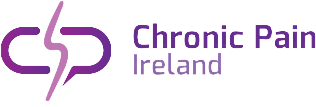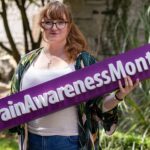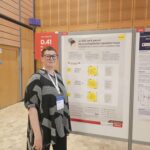PFIZER HEALTH AND SCIENCE INDEX 2019 RESULTS SHOW THAT 60% OF PEOPLE SUFFER WITH A SIGNIFICANT HEALTH CONDITION
Pfizer Health and Science Index 2019 results show that 60% of people suffer with a significant health condition
High majority think that scientific advancement fosters a better society and want a bigger focus on science in primary school
Dublin, Tuesday 25th June 2019 – The 14th annual Pfizer Index was today launched to at the Royal College of Surgeons in Ireland. Focusing this year on the importance of science in improving health, the findings of the Pfizer Health and Science Index 2019 were presented by Paul Reid, Managing Director, Pfizer Healthcare Ireland, who was joined by guest speakers, Professor Charles Normand, Professor of Health Policy and Management in Trinity College Dublin, Dr. Ruth Freeman, Director of Science for Society at Science Foundation Ireland, and Pfizer Health and Science Index 2019 ambassador, Kathriona Devereux, science-engagement broadcaster.
The annual Pfizer Index is a nationally representative study of health and wellness charting perceptions, behaviours and attitudes of Irish adults towards health. For the first time, the Index has broadened its scope to include science, investigating the public’s perception of science and specifically its perceived role in healthcare.
This year’s Health findings demonstrated that:
- The average self-health scores have further deteriorated in 2019 by 6 percentage points, with lowest-to-date scores registered. The majority of people surveyed (63%) rate their health as 7 out of 10 or higher,with only 4% of those giving their health a score of 10 out of 10;
- Three in five (60%) of people suffer with a significant health condition, with high blood pressure the most commonly reported prevailing condition;
- Depression and other anxiety related issues are more often claimed by women, those within the 25-34 category (23%)
- Chronic pain comes first as having the most severe impact on the quality of life for those living with the condition
- In terms of medical insurance levels, a quarter of people surveyed have traded down to cheaper premiums. Meanwhile, almost one in twenty (4%) have stopped paying for private medical insurance of the past year;
- Participation in occupational workplace health and wellness initiatives continues to drive ahead with an increase in engagement of four percentage points to 19%;
- 38% (2 in 5) have been for a health screening in the past year, with 31% (3 in 10) vaccinated as part of a public programme. Adult vaccination increased by 4 percentage points to 31%;
- When looking at vigilance to ensure better health in later life, diet and exercise are the top two steps; more than 7 in 10 mention one or both. Sleep also features prominently with almost 3 in 5 (58%) claiming they have taken steps in this area.
Science in Healthcare
Turning to this year’s theme of the role of science in healthcare; while the Index reports some encouraging results with 80% of people thinking that scientific advancement fosters a better society, a further two-thirds (66%) relate science and advancement to medicine. Interestingly, 3 in 5 people (61%) feel that lifestyle changes are more important factors in reducing the impact of illness and disease, with scientific interventions such as innovative medicines and diagnostics ranked lower by the public.
In addition, looking at general attitudes to science in society:
- Only 21% studied science at third level and of those studying science subjects for leaving certificate, 68% choose biology with only 30% studying chemistry; 33% studying physics and 6% studying computer science
- 82% would like to see more of a focus on science in primary school;
- The vast majority (92%) of parents either have or would encourage their children to study science or computer science;
- 69% of men, in the middle classes and 85% of those under 25 are particularly likely to feel that studying STEM affords a better chance of getting a job;
- 34% (1 in 3) feel there are more STEM opportunities in Ireland than elsewhere.
Unveiling the Pfizer Health and Science Index findings, Paul Reid, Managing Director of Pfizer Ireland said; “Pfizer is delighted to announce our annual Index results particularly as we celebrate our 50th anniversary in Ireland this year. Scientific research and development is at the heart of what we do and it is heartening to see such positive attitudes towards the impact of science on society. The pursuit of scientific excellence will help us discover new therapies that transform patient’s lives. Ireland is unique in having such a strong base of pharmaceutical and technology companies located here which offers excellent career opportunities. We need to see more students taking STEM subjects at leaving certificate and more students entering into third level maths.”
Professor Charles Normand, Professor of Health Policy and Management in Trinity College Dublin said; “It is clear that there are more and more people now living well with chronic diseases, and many of these are living well with several. They will benefit greatly from more effective treatments with fewer side effects. If we are to take full advantage of the opportunities for people to age well we will need more effective disease prevention and health promotion, new and innovative medicines and better organisation of care. Research is vital to support each of these, with key roles for government, academia and industry, working in partnership to deliver better outcomes. We need to apply the best science to understanding needs and providing effective treatments, and we need to be willing to be innovative and to take risks.”
Health and Science Index Ambassador, Kathríona Devereux said; “As a child my ambition was to become a paediatrician or an astronaut but by the time I got to secondary school I realised I probably didn’t have the patience to be a scientist. However, I never lost that original passion, and, after several years working on science shows, I completed a Master’s in Science Communication in DCU to formalise my knowledge. As someone with an innate passion for science, it is encouraging to see that 82% of Irish adults would like to see more of a focus placed on science in primary school and that 92% have or would encourage their children to study science or computer science.”
Dr Ruth Freeman, Director of Science for Society at Science Foundation Ireland, said; “Science Foundation Ireland welcomes Pfizer’s inclusion of Science in their Index this year, it is a very fitting addition as science and healthcare go hand in hand. I was surprised to see that only 66% of people surveyed see this link between the two. Science is within the building blocks of all medical advancement and it is important for us as a society to be more aware of this in our everyday lives. As industries we need to work together so that the public can clearly see this collaboration between health and science, that perhaps is not always obvious from the outside.”
ENDS
About the Pfizer Health and Science Index 2019
The Pfizer Health and Science Index is a nationally representative sample of 1,035 adults, carried out by Behaviour and Attitudes Research company. The 2019 Pfizer Health and Science Index is the fourteenth iteration of the study. Fieldwork was completed between April 4th and 25th 2019, with all interviews conducted online.
To download the report, please click here















